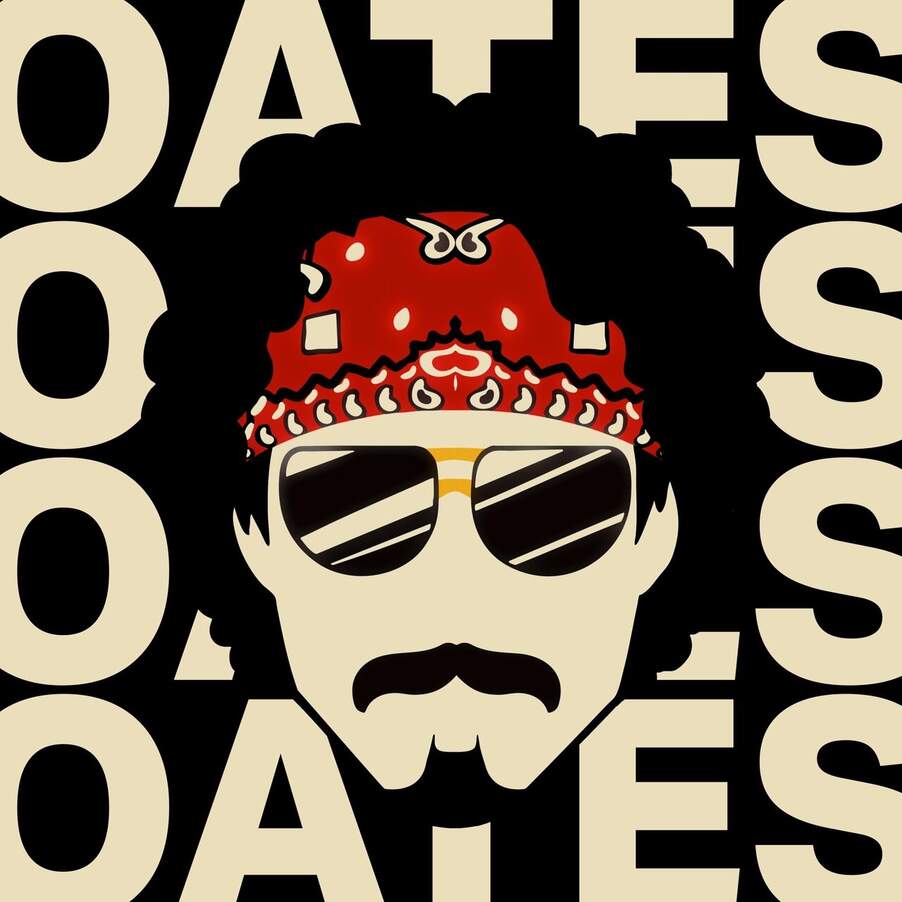After decades of John Oates enduring the perpetual underestimation as ‘the other half’ of Hall & Oates, his self-titled seventh solo album arrives as an artistic statement of unprecedented freedom. With the legal disputes with Daryl Hall finally resolved and the duo definitively laid to rest, “Oates” presents itself as a liberating return to the groove-oriented R&B, yacht-rock and pop that established his reputation in the eighties. It is an album born out of necessity, both artistic and existential, and which paradoxically results in Oates’ most authentic and convincing solo work to date. The man is now 77, but doesn’t sound it, and his songwriting skills prove to be top-notch, still.
Producer David Kalmusky, known for his work with Keith Urban and Shawn Mendes, has created a sound with Oates that perfectly utilises the warm analogue qualities of Sound Emporium Studios in Nashville. The opener “Enough Is Enough”, in which the New York soul-pop collective Lawrence serves as perfect support for Oates’ mature voice, immediately establishes the album’s aesthetic: a seductive combination of contemporary production techniques and timeless song structures. Oates’ 1958 Stratocaster, plugged back in after years of acoustic Americana excursions, produces here those characteristic, gleaming tones that formed the cornerstone of classics like “Maneater”.
“Pushin’ a Rock”, originally released as a single in 2022, gains new dimension here through Kalmusky’s refined mix of analogue synthesisers and digital precision. The track perfectly embodies Oates’ lyrical obsession with perseverance, a theme that dominates the entire album as an autobiographical metaphor. His vocal performance shows the characteristic raspiness that the years have added to his timbre, but retains the melodic precision that always distinguished him from his more flamboyant partner. The collaboration with Devon Gilfillian on “Mending” and “Real Thing Going On” proves Oates’ ability to integrate with a new generation of soul artists, with the Philadelphia roots that both share clearly audible in their natural harmonic interaction.
Thematically, “Oates” navigates between introspection and worldly curiosity, with pandemic-inspired tracks like “Disconnected” and “World’s Gone Wrong” functioning as time capsules of collective alienation. These songs reflect not only personal experiences of isolation, but position themselves within a broader tradition of American songbook artists who translate social unrest into universal human emotions, a line that runs from Woody Guthrie via Marvin Gaye to Bruce Springsteen.
The Latin incursions “Dreaming of Brazil” and “Bajo la Luz de la Luna” (the latter composed for the film “Gringa”) testify to Oates’ cosmopolitan sensibility and his lifelong fascination with Antonio Carlos Jobim’s bossa nova aesthetic. This echoes the multicultural approach that Hall & Oates employed in their heyday, whereby American pop craftsmanship was infused with international influences. The album closes with a striking cover of Marc Cohn’s “Walking in Memphis”, followed by a Grabbitz remix, a choice that is both respectful and daring, and which illustrates Oates’ willingness to recontextualise his heritage within contemporary electronic soundscapes.
“Oates” succeeds in avoiding nostalgia without denying its artistic DNA, no easy achievement for a 77-year-old veteran. The strongest moments arise when Oates combines his songwriting experience with the fresh energy of his collaborators, such as on the mesmerising “A Ways Away” with its brilliant acoustic guitar layers. Weaker moments manifest themselves primarily in the somewhat predictable arrangements of tracks like “Let Me Be the One”, where the production sometimes overshadows the inherent strength of Oates’ songwriting.
Compared to his previous album “Reunion” from 2024, “Oates” shows an artist who is comfortable with both his past and his future. Where many of his generation were trapped in pastiche or bitter reflection, Oates proves here that reinvention is possible without self-denial. His position within today’s musical landscape is that of a master craftsman who has adapted his tools to new times without forgetting where he comes from.
“Oates” functions as both continuation and new beginning, closing a turbulent chapter whilst simultaneously opening new artistic possibilities. The album confirms Oates’ status not as a nostalgic curiosity, but as a living, evolving artist whose best work may well still lie ahead of him. In an age when authenticity is often used as a marketing strategy, Oates offers the rare example of an artist who has genuinely found himself again. A brilliant album! (8/10) (Jasper Productions)

